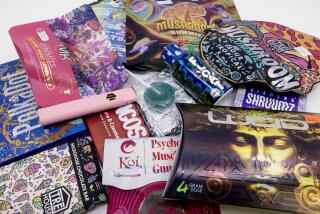Three orange juice samples tested for fungicide are negative
Three orange juice samples tested by the U.S. government found no measurable amounts of a fungicide linked to liver tumors in animals, easing concern about a ban on imports that boosted prices to a four-year high.
Twenty-eight samples were awaiting tests for the chemical carbendazim as of Jan. 12, with results due within three weeks, the Food and Drug Administration said in a statement on Jan. 13. Low levels of the fungicide aren’t a health risk and no juice is being recalled, the FDA said. The tested juice is being released into the U.S., Siobhan DeLancey, an FDA spokeswoman, said.
The FDA said last week it was alerted on Dec. 28 by a juice company that detected low levels of carbendazim in its and its competitors juices. The Coca-Cola Co., the Atlanta-based maker of the Minute Maid brand, said on Jan. 11 that it alerted the FDA. PepsiCo Inc. on Jan. 13 said it had found traces of the unapproved fungicide in its Tropicana orange juice at levels that don’t raise government safety concerns, the Wall Street Journal reported on Jan. 14, citing a company spokesman.
Orange-juice futures rose to $2.0775 a pound on ICE Futures U.S. on Jan. 10, the highest price since March 2007. Prices climbed 3.9 percent last week, with the March futures contract jumping 3.7 percent on Jan. 13.
U.S. Imports
The U.S., the biggest single importer of orange juice, took in 190,000 metric tons last year, U.S. Department of Agriculture data show. The 27-country European Union imported 800,000 tons last year.
The fungicide is used legally in Brazil, the world’s biggest exporter of the juice, to combat black spot, a type of mold that grows on orange trees, the FDA said. Black spot doesn’t affect taste or yields but makes oranges less appealing to consumers, Brazil’s grower-run Fund for Citrus Plant Protection, known as Fundecitrus, said in an e-mail last week.
The U.S. started testing imported orange juice on Jan. 4, the FDA said. The U.S. will refuse shipments that contain more than the country’s limit of 10 parts per billion of carbendazim, it said. The agency tests three samples from each manufacturer and if all are found to be in compliance, products from that company are no longer sampled, it said.
Americans consumed 1.2 million gallons from the 2009-10 growing season, U.S. Department of Agriculture data show. The agency hasn’t previously tested for the chemical because it wasn’t a risk, DeLancey of the FDA said last week.
European Union officials are scheduled to discuss carbendazim in orange juice at a meeting next month, Frederic Vincent, the bloc’s health spokesman, said in a phone interview today. The subject was not on the agenda of a meeting of the union’s Standing Committee on Food Chain and Animal Health today, Vincent said.
The European Commission, the EU’s regulatory arm, is not recommending member states increase testing of imported orange juice, Vincent said.
More to Read
Inside the business of entertainment
The Wide Shot brings you news, analysis and insights on everything from streaming wars to production — and what it all means for the future.
You may occasionally receive promotional content from the Los Angeles Times.









